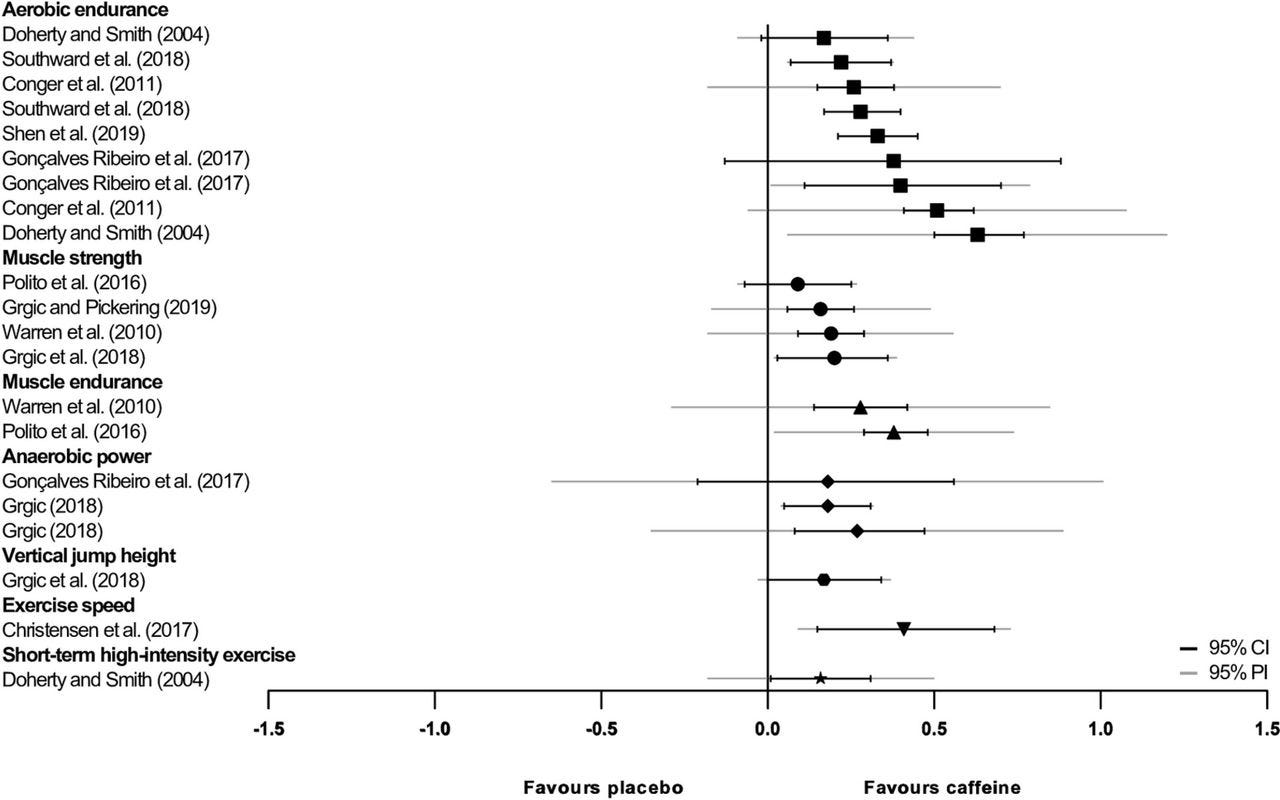Coffee, Caffeine, and Exercise: a Brief History and Genetic Influences
The world's most popular drug is also one of the most potent ergogenic aids.
In the spirit of irony (or perhaps necessity), I’m writing this post while sipping on one of my favorite (warm) beverages — black coffee. Rarely a day goes by that I don’t consume the nectar of the gods, which makes me similar to millions of others around the world. Perhaps you’re also partaking while reading this.
Coffee is an integral part of many cultures and daily routines, and the main reason that most people consume it is to get a dose of their favorite drug — caffeine.
Caffeine is well known for its effect on mental alertness, energy, and cognitive function, but caffeine is also one of the most well-studied ergogenic (performance-enhancing) substances ever, and also one of the most effective (of the legal stuff). When consumed before and even during exercise, caffeine gives us a boost via several mechanisms.
In this post, I’ll discuss the origins of coffee/caffeine in relation to exercise, the mechanisms by which coffee/caffeine exert their ergogenic effects, and new data suggesting that the effects of caffeine on performance may be genotype-specific.
Coffee and exercise: a brief history 🌍
The history of coffee dates back to the 1100s, with its discovery in the Ethiopian mountains. Over time, it spread through Arabia and reached Europe in the 1600s. Despite changes in its form as a beverage, coffee's popularity was likely influenced by more than just taste; its caffeine content and the "entourage effect" with other components were known to produce a stimulatory state. Modern science has explored coffee and its components, drawing from various fields such as agriculture, metabolism, sensory perception, and psychometrics, to understand coffee’s wide-ranging effects on the body.
Coffee's use for exercise performance has roots that trace back centuries. The stimulant effects of caffeine in coffee have been acknowledged for a long time, but the systematic study of caffeine's impact gained more attention in the late 20th century.
Notable studies in the 1970s and 1980s began to examine caffeine's potential benefits for endurance and physical performance. The 1984 Los Angeles Olympics marked a notable event where caffeine use by athletes became more widely discussed.
Dr. David Costill, a renowned exercise physiologist, made significant contributions to the field of sports science, particularly in the study of caffeine and exercise performance. His research played a pivotal role in understanding the effects of caffeine on athletes during exercise.
Costill conducted experiments that explored how caffeine influenced endurance, aerobic capacity, and overall physical performance. His work laid the foundation for subsequent studies examining the ergogenic effects of caffeine, and findings from his laboratory contributed to the understanding that caffeine could enhance endurance by influencing factors such as glycogen utilization and fatty acid mobilization.
By rigorously investigating the impact of caffeine on exercise, Dr. Costill's research became instrumental in shaping the discourse around the use of caffeine as an ergogenic aid.
These ergogenic effects are somewhat indisputable: a meta-analysis published in 2020 indicated that caffeine improves aerobic endurance, muscle strength, muscle endurance, anaerobic power, jump height, speed, and short-term high-intensity exercise performance. Caffeine doesn’t discriminate.
How do coffee/caffeine improve exercise performance? ☕
Coffee comprises various components, including caffeine, chlorogenic acids, ferulic acid, caffeic acid, nicotinic acid, and several other unidentified compounds. The concentrations of these elements can be influenced by factors such as coffee variety, bean source, washing/drying methods, roasting techniques, storage conditions, particle size, and preparation practices. These wide concentration ranges may impact the ergogenic effects of coffee and make studying coffee somewhat difficult due to issues of standardization. It also makes quantifying one’s own daily caffeine intake hard to do!
Nevertheless, caffeine (and other components of coffee) exert numerous physiological effects related to the brain, metabolism/the endocrine system, and skeletal muscle.1
Keep reading with a 7-day free trial
Subscribe to Physiologically Speaking to keep reading this post and get 7 days of free access to the full post archives.





